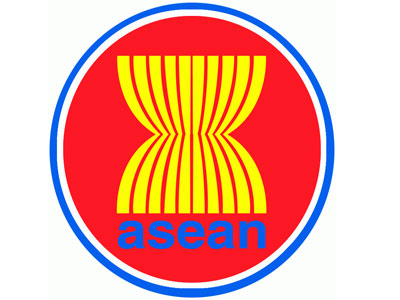The recent 31st ASEAN Summit in the Philippines has raised some interesting issues. Both for the interests of ASEAN and Indonesia. First, the Rohingya issue is on the agenda of the meeting. It is interesting to see how ASEAN as the only regional organization in Southeast Asia address this crucial issue. Although the summit did not yield satisfactory results to ASEAN's attention to the humanitarian issue for the Rohingyas, at least the behavior of ASEAN member countries has been read before the Philippine International Convention Center (PICC) Manila.
On the one hand, individual ASEAN members seem reluctant to raise the issue of Rohingya to the regional level. One reason is the concern that sympathy for Rohingyas will pose a risk to ASEAN's non-interference principle. On the other hand, ASEAN countries tend to be more receptive to Indonesia's humanitarian efforts to really support the ethnic of Rohingyas. For Myanmar, the behavioral trends of ASEAN countries are more acceptable given the complexity of the issue at the country's domestic level, including the controversy over Aung San Suu Kyi's position as the recipient of the Nobel Prize.
Second, the ASEAN Summit succeeded in signing a joint consensus on the protection and promotion of the rights of migrant workers. The consensus was a mandate from the Cebu Declaration on the protection of migrant workers' rights held in Cebu Philippines in 2007. The Cebu Declaration became an embryo for the establishment of the ASEAN Committee on Migrant Workers (ACMW) in 2008 and encouraged the ASEAN Forum Migrant Labor (AFML). The hope is that the consensus can bind ASEAN countries in responding to migrant workers in Southeast Asia.
The agenda of KTT ASEAN also covered other issues, such as dispute over claims in the South China Sea, counterterrorism, and Palestine. The various agenda showed the great challenges facing ASEAN to manage various issues in its territory. The two basic principles held by ASEAN member countries up to now are non-interference and ASEAN centrality. Recent developments showed that ASEAN's basic principles were maintained. HowevHowever, the challenge is very dynamic and requires a responsive attitude from member states.
During the two-day summit, ASEAN not only organized regional meetings on the various agendas, but also ASEAN heads of state and government should attend other meetings with other dialogue partners. President Jokowi, for example, attended about 21 important meetings during the 3-day summit, such as: ASEAN Leader's Interface with the ASEAN Business Advisory Council (ABAC), the ASEAN-US Summit, the ASEAN-China Summit, the ASEAN-Korea Summit, the ASEAN- and APT Leaders Interface Meeting with the East Asia Business Council.
Both issues are a new challenge for ASEAN. The issue of Rohingya and the rights of migrant workers actually touches on fundamental issues in the dynamics of the development of ASEAN regionalization to date. At least since 4 years ago, ASEAN has began to encourage community participation in order to realize the ASEAN community. The expansion of ASEAN stakeholders from state actors themselves to engaging state actors has required hard work and serious commitment from the governments of each member country. This trend also changed the paradigm of thinking and framework in ASEAN from people-oriented to people centered.
For Indonesia, the support for ethnic Rohingyas can be done by mobilizing the strength of other ASEAN or multilateral countries to be able to provide individual and regional pressure (pressure) on Myanmar. In fact, if needed, Indonesia can voice to the UN Secretary-General to deploy peacekeeping forces in Myanmar although these efforts still need to take into account the complexities of domestic factors and the dynamics of the influence of the major powers (such as the US and China) in Myanmar.
In addition, the signing of the consensus is a tangible form of the success of the Indonesian initiative that has raised the issue at this 31st Summit. The consensus can be a starting point for building common ground rules at the regional level. Indonesia's efforts are not separated from Indonesia's commitment to always include social issues in the Southeast Asian region. In a more fundamental context, this Indonesian initiative is a part of a serious effort to promote ASEAN.
(Ludiro Masu MSi, Lecturer at the Department of International Relations, UPN Veteran'Yogyakarta.) This article is published in the Daily Newspaper of Sovereignty, Saturday, November 18, 2017)
Jl. SWK 104 (Lingkar Utara), Condongcatur, Yogyakarta 55283 (Kampus Pusat)
Jl. Babarsari 2 Yogyakarta 55281(Kampus Unit II) | Telp. +62 274 486733



